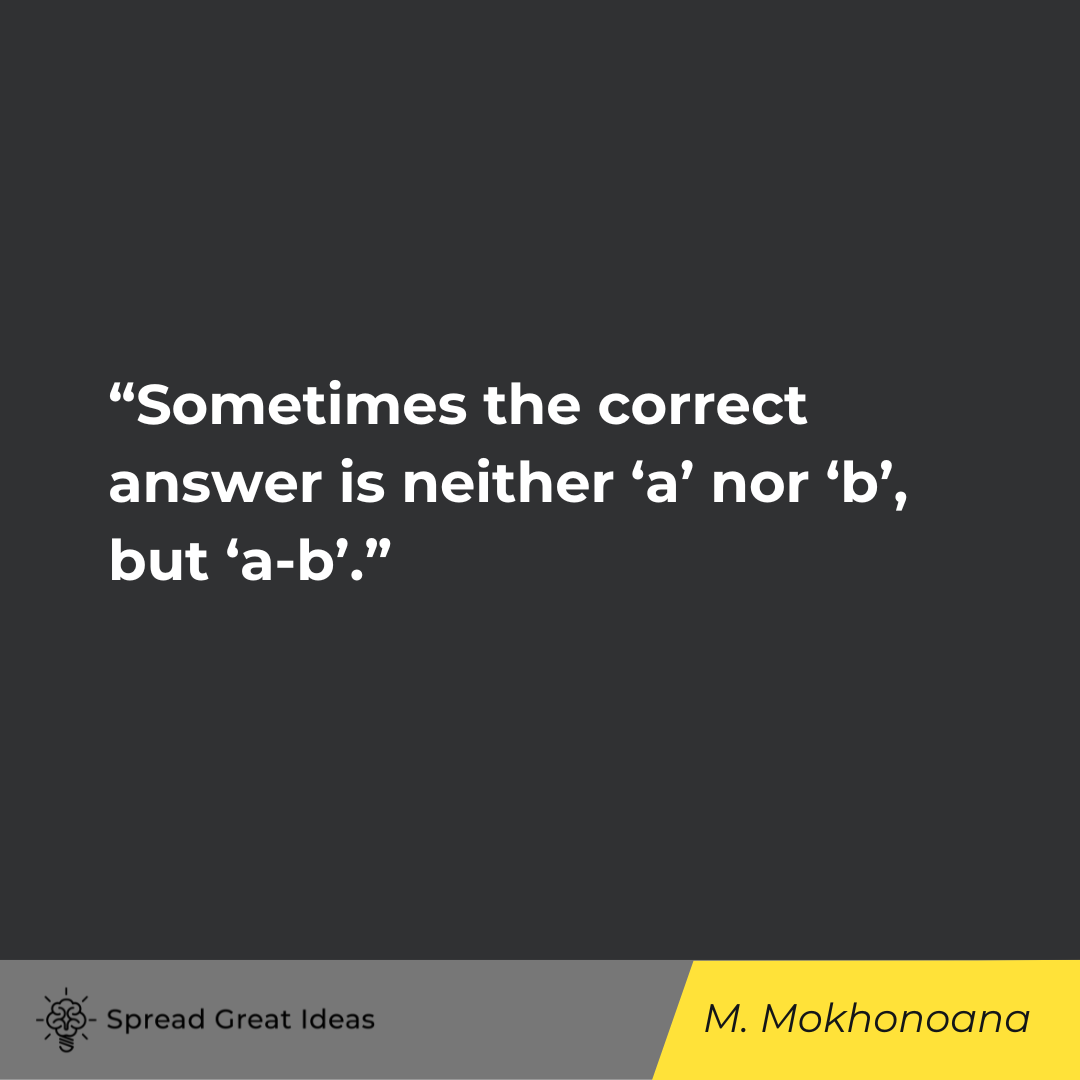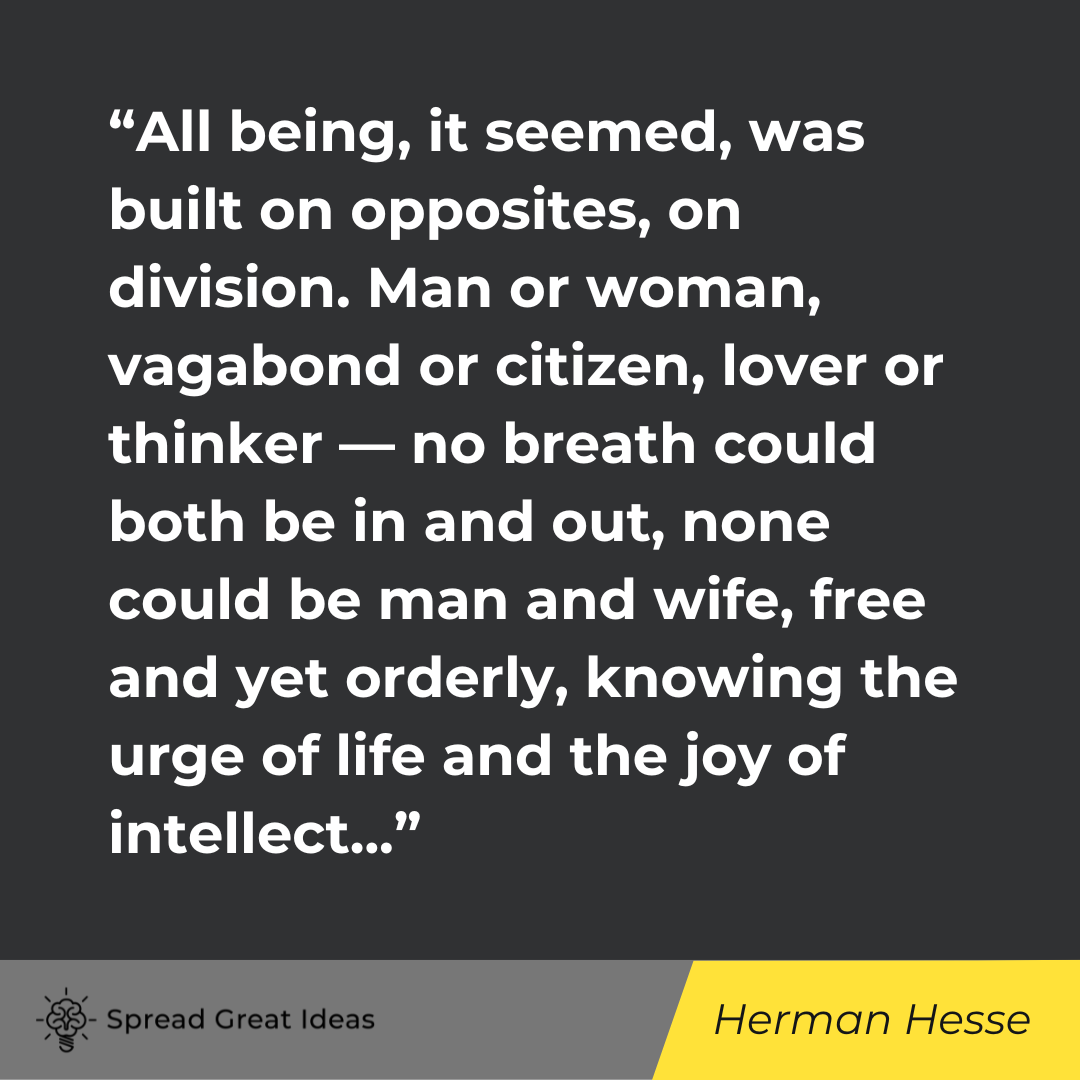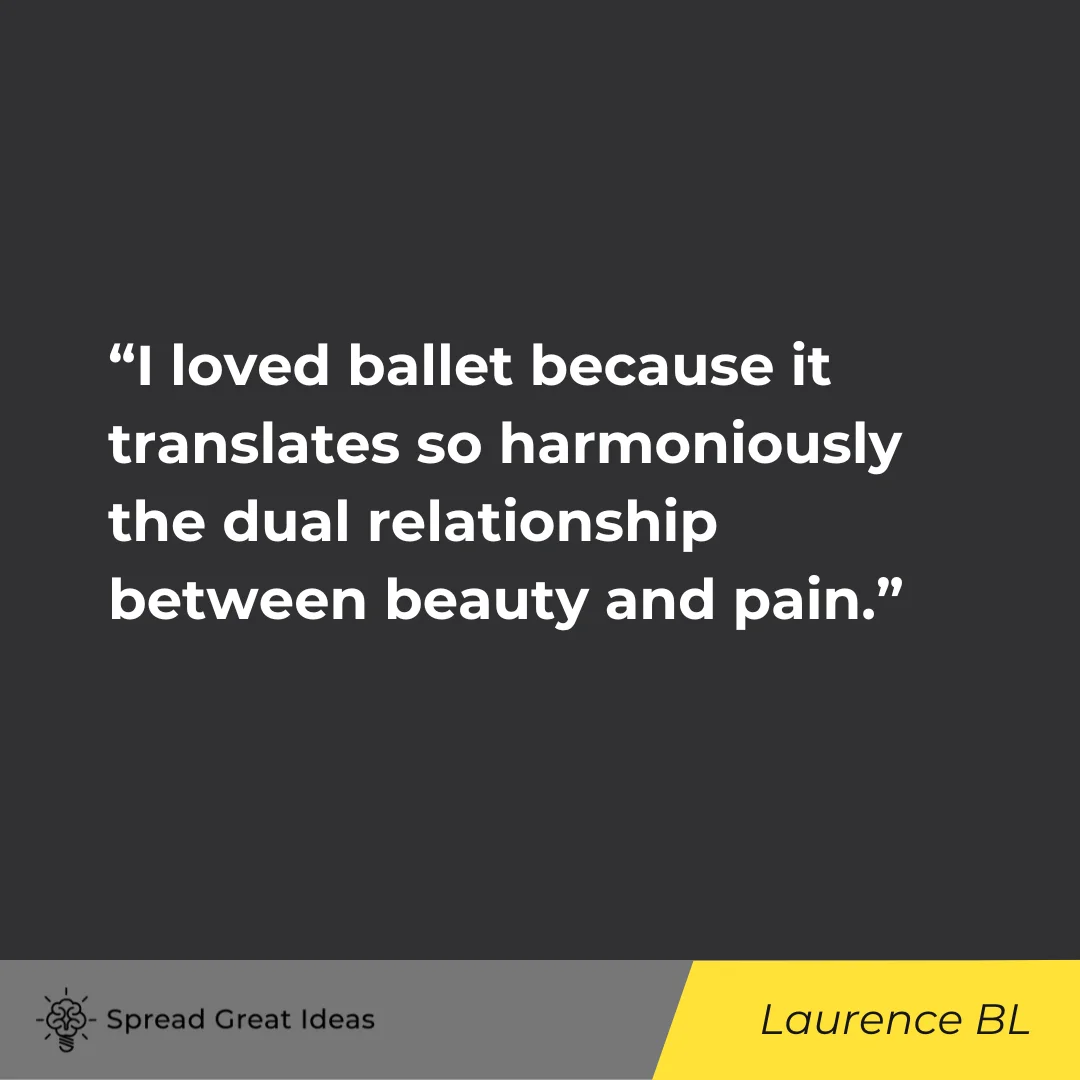Table of Contents
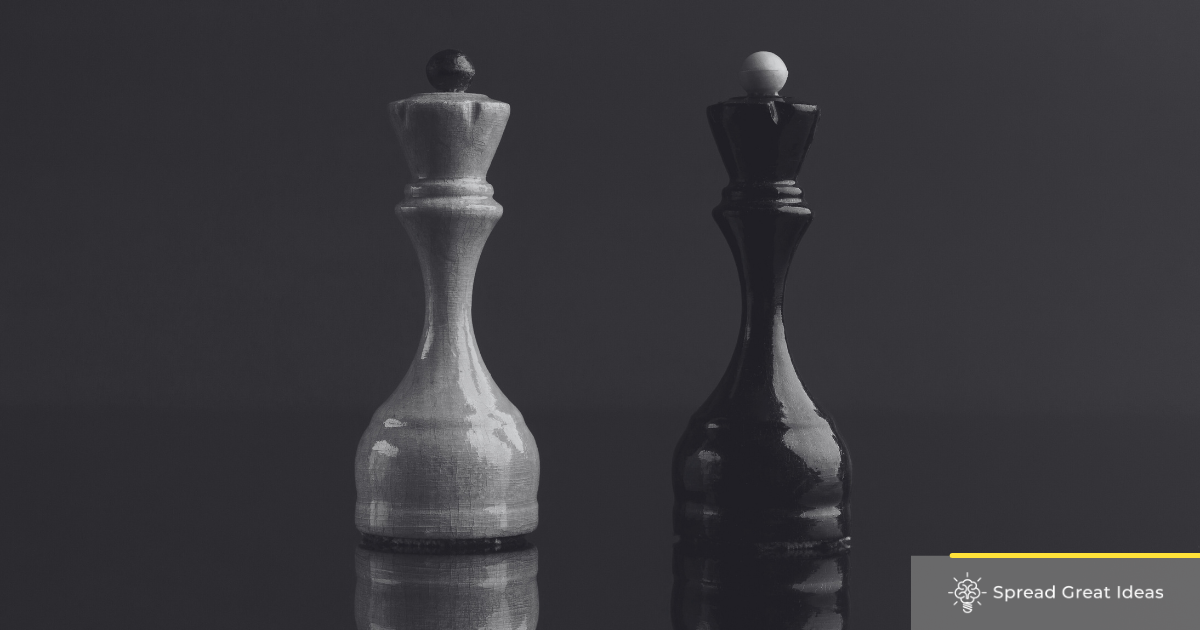
In the intricate tapestry of existence, one prevailing theme weaves its way through our perceptions and experiences—duality. The concept of duality encapsulates the inherent contradictions and opposing forces that coexist within us and the world around us. It is a profound reminder that life is not defined by absolutes, but rather by a delicate balance between opposing elements.
Duality encompasses the essence of contrasting elements coexisting harmoniously or in tension with one another. It is a constant reminder that light cannot exist without darkness, joy without sorrow, or growth without adversity. Just as a coin bears two sides, duality is an inseparable part of our human nature. We are not simple beings; rather, we embody the complexity of opposing forces within ourselves.
The duality of human nature is an eternal struggle between virtue and vice, reason and passion, creation and destruction. It is encapsulated in our capacity for both kindness and cruelty, love and hate, and altruism and selfishness. We witness it in our ability to create breathtaking works of art, yet also inflict immeasurable suffering upon one another. The contrasting shades of our character form a vivid tapestry that reflects the multifaceted nature of being human.
Beyond the realm of humanity, duality permeates all aspects of life. Nature itself thrives on the harmonious dance of opposing forces. Day and night, summer and winter, growth and decay—all showcase the delicate equilibrium of duality. The natural world is full of subtle examples of duality, from the natural and necessary coexistence of predator and prey to how the Moon creates high and low tides. Without these examples of duality the world as we know it could experience very detrimental effects from degraded habitats to potential mass extinctions.
Understanding and appreciating duality is of paramount importance in our journey through life. By accepting the contradictory elements of our existence and recognizing the dual nature of the world, we are able to more profoundly understand the complexities of human experience. Duality invites us to delve deeper, to explore the paradoxes, and to question our preconceived notions. Take for example the duality of male and female.
Despite its limitations and potential for perpetuating stereotypes, the duality of male and female can offer opportunities for growth and understanding. By acknowledging and embracing the differences between genders, we can foster a more inclusive and equitable society. Recognizing and appreciating the unique qualities and perspectives that each gender brings can enrich our personal relationships, broaden our worldview, and promote a sense of unity within diversity.
Through this curated collection of quotes, my aim is to shed light on the profound implications of duality. These carefully selected words, from philosophers, poets, scientists, and visionaries across time, reveal the intricate dance of opposites that shape our lives. They invite us to contemplate the dualities we encounter, to challenge our perceptions, and to find meaning amidst the seeming contradictions.
By immersing ourselves in the contemplation of duality, we foster a heightened awareness of our own complexities. We recognize that embracing our contradictions enables personal growth and deepens our understanding of the human condition. Moreover, by acknowledging the duality that exists in ourselves and in the world, we cultivate empathy, compassion, and a broader perspective.
The duality of man and life intertwines to form a vibrant mosaic of experiences and emotions; some bitter, some sweet. It is this interplay of opposing forces that adds depth, richness, and meaning to our lives. As you embark on your journey through the curated collection of quotes, open your hearts and minds to the duality that surrounds you. When we embrace the dichotomy we are more able to appreciate the beauty, complexity, and interconnectedness of all things.
Together, let us embark on this exploration of duality, forging a path towards deeper self-awareness, empathy, and wisdom.
Quotes About Duality and Female & Male Duality
Joseph Campbell
“Are some myths more or less true than others? They’re true in different senses you see. Here (Buddhism?) is a whole mythology on the insight that transcends duality. (That transcends time.) Ours (Christianity) is a mythology based on the insight of duality. And so our axis tends to be ethical – sin and atonement, right and wrong. The Judea-Christian creation myth starts with a sin you see. Moving out of the mythological zone, the Garden of Paradise (Eden) where there is no time, and where men and women don’t even know that they are different from one another. They’re just creatures. And God and Man are practically the same. They walk together in the cool of the evening in the Garden of Eden together. And then they eat the apple from the Tree of Knowledge, which makes them aware of the opposites. And the man and woman cover their shame – they’re different. God and Man are now different. Nature is against Man. (All duality).”
– Joseph Campbell, Bill Moyers Season 1 Episode 2 Joseph Campbell and the Power of Myth – “The Message of the Myth”
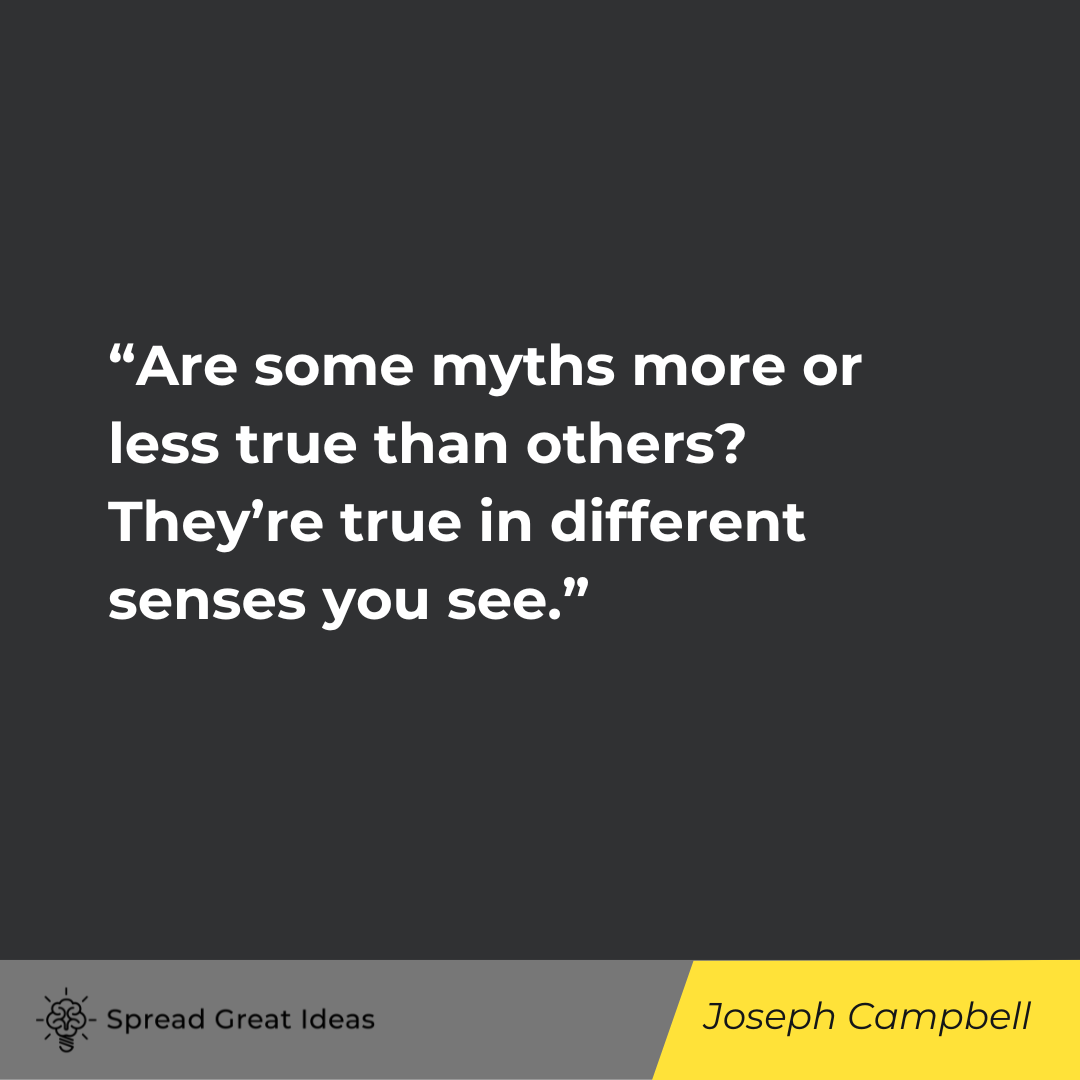
“Is the god the source, or is the god a human manner of conceiving of the force and energy that supports the world? In our tradition God is a male. This male and female differentiation is made, however, within the field of time and space, the field of duality. If God is beyond duality, you cannot say that God is a ‘He.’ You cannot say God is a ‘She.’ You cannot say God is an ‘It.'”
– Joseph Campbell, Thou Art That: Transforming Religious Metaphor
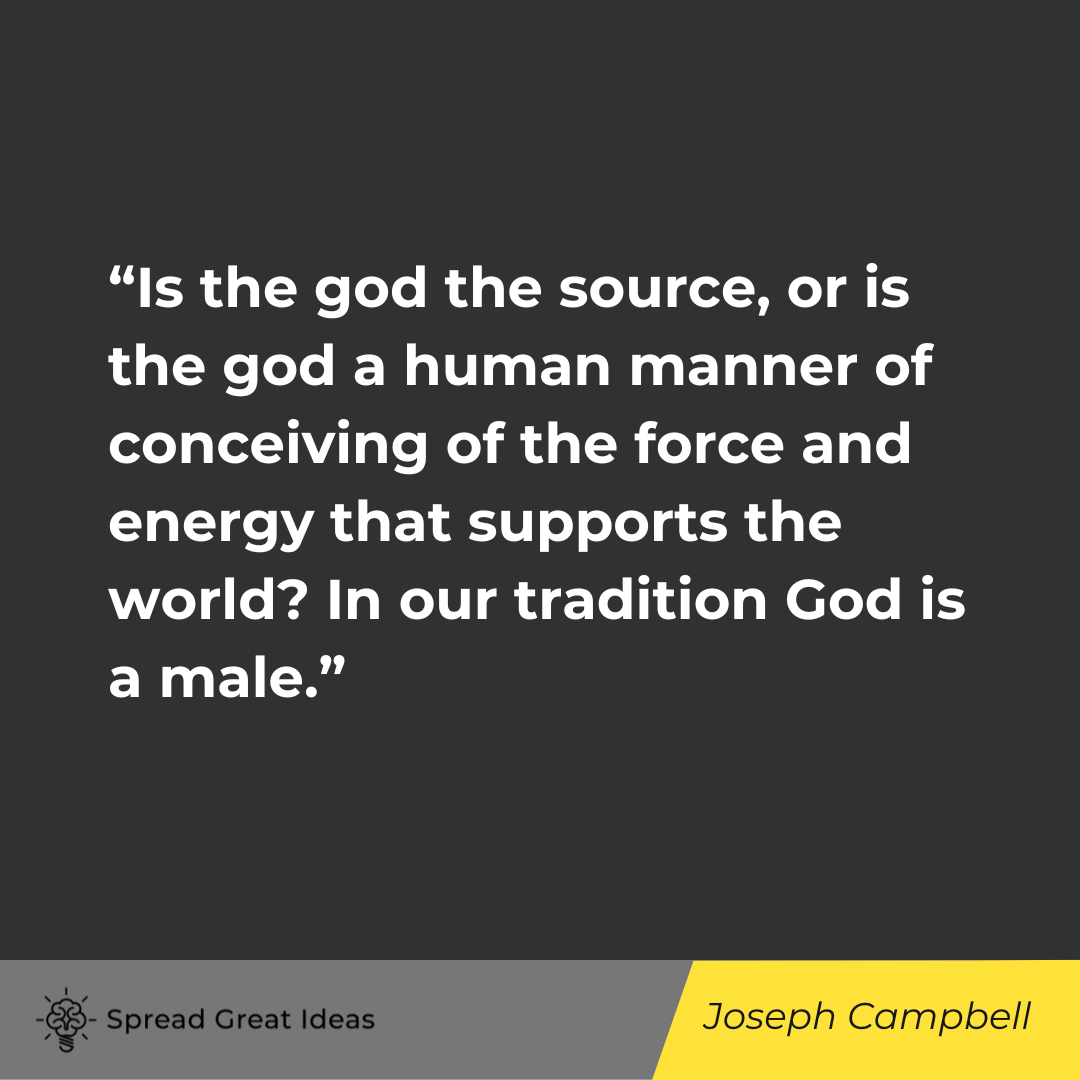
“Every act has both good and evil results. Every act in life yields pairs of opposites in its results. The best we can do is lean toward the light, toward the harmonious relationships that come from compassion with suffering, from understanding the other person.”
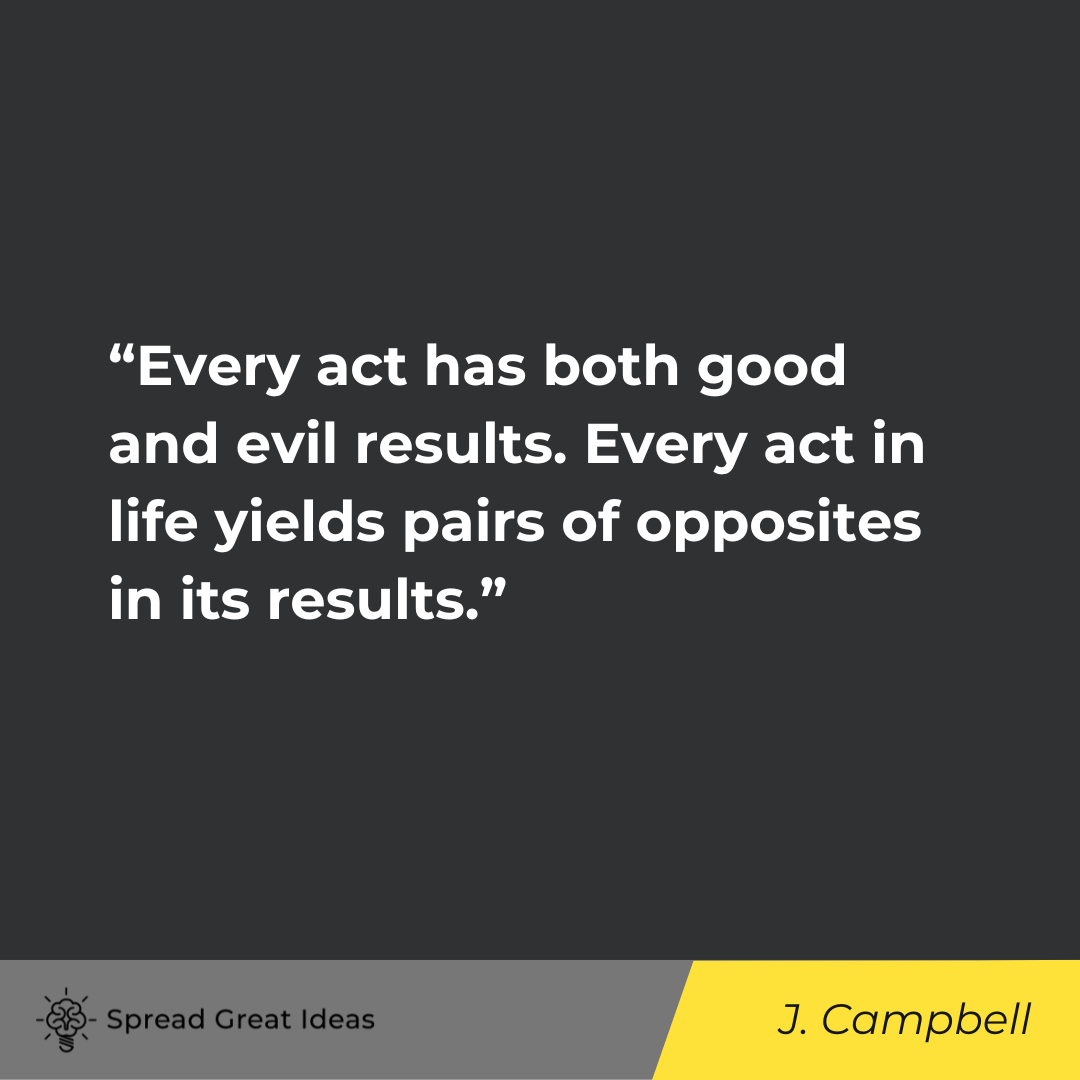
Friedrich Nietzsche
“For the male sickness of self-contempt the surest cure is to be loved by a clever woman.”
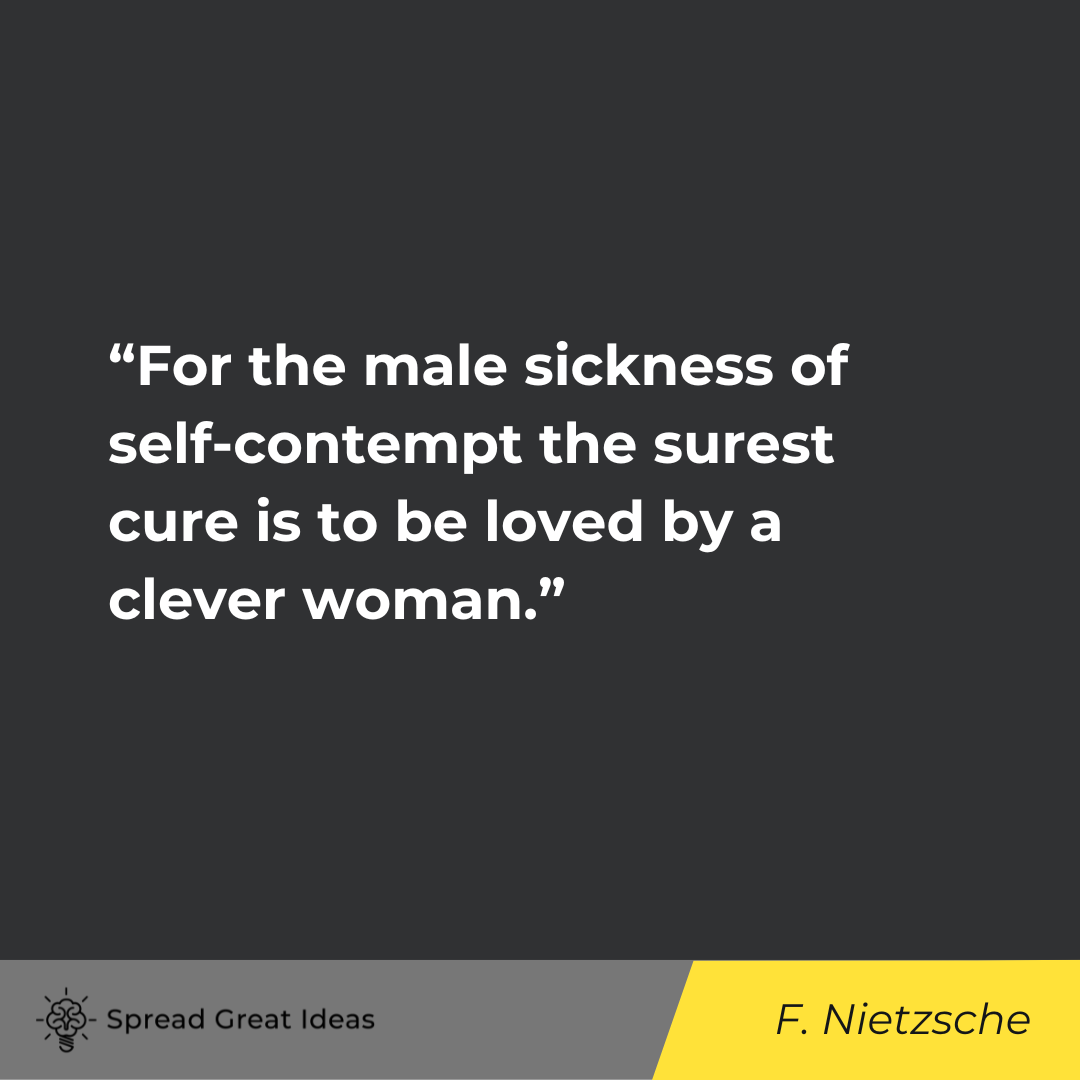
Herman Hesse
“All being, it seemed, was built on opposites, on division. Man or woman, vagabond or citizen, lover or thinker — no breath could both be in and out, none could be man and wife, free and yet orderly, knowing the urge of life and the joy of intellect. Always the one paid for the other, though each was equally precious and essential.”
American proverb
“A man chases a woman until she catches him.”
– American proverb
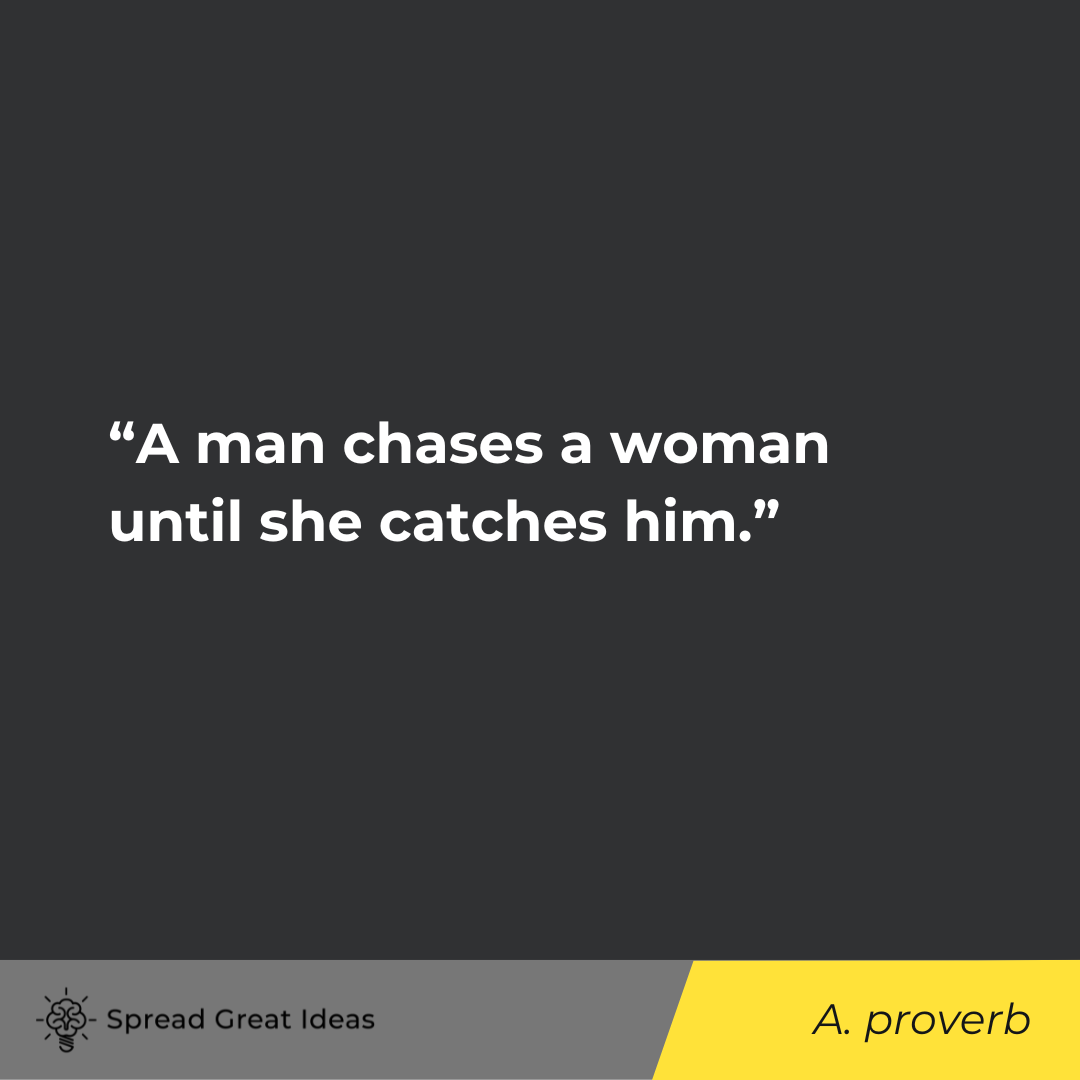
“Women get the last word in every argument. Anything a man says after that is the beginning of a new argument.”
– American proverb
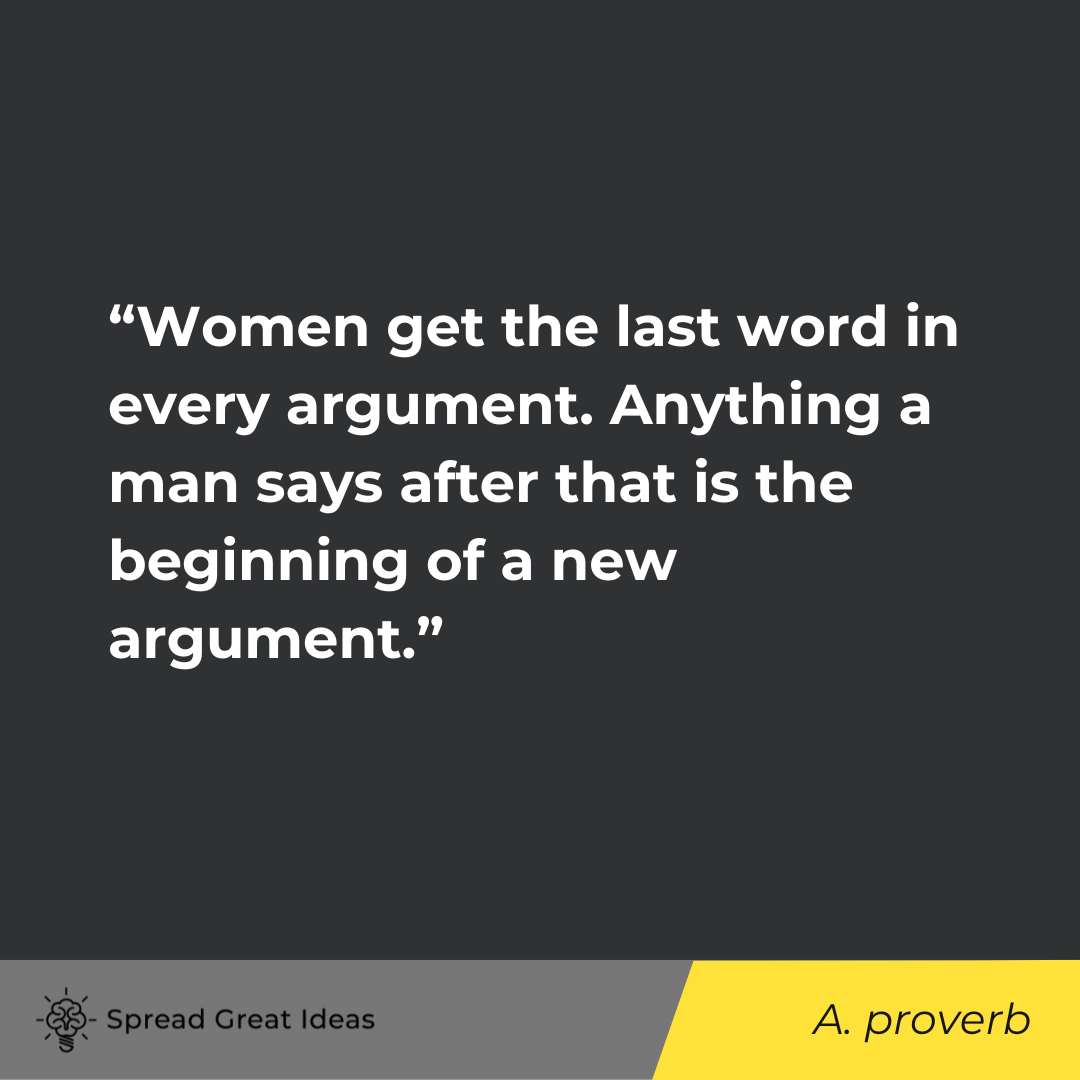
Carl Jung
“But there is no energy unless there is a tension of opposites; hence it is necessary to discover the opposite to the attitude of the conscious mind.”
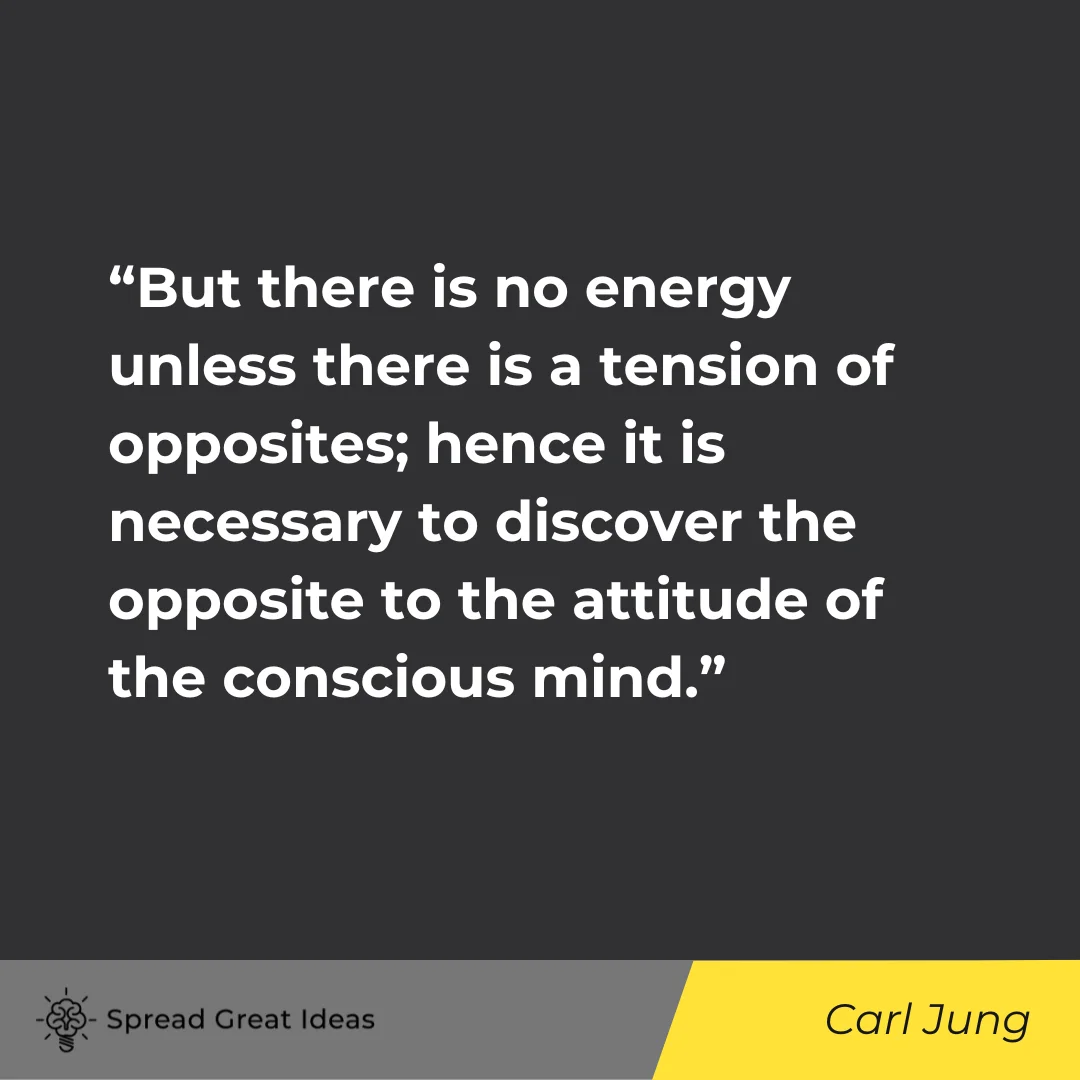
Candace Bushnell
“Man may have discovered fire, but women discovered how to play with it.”
– Candace Bushnell, Sex and the City
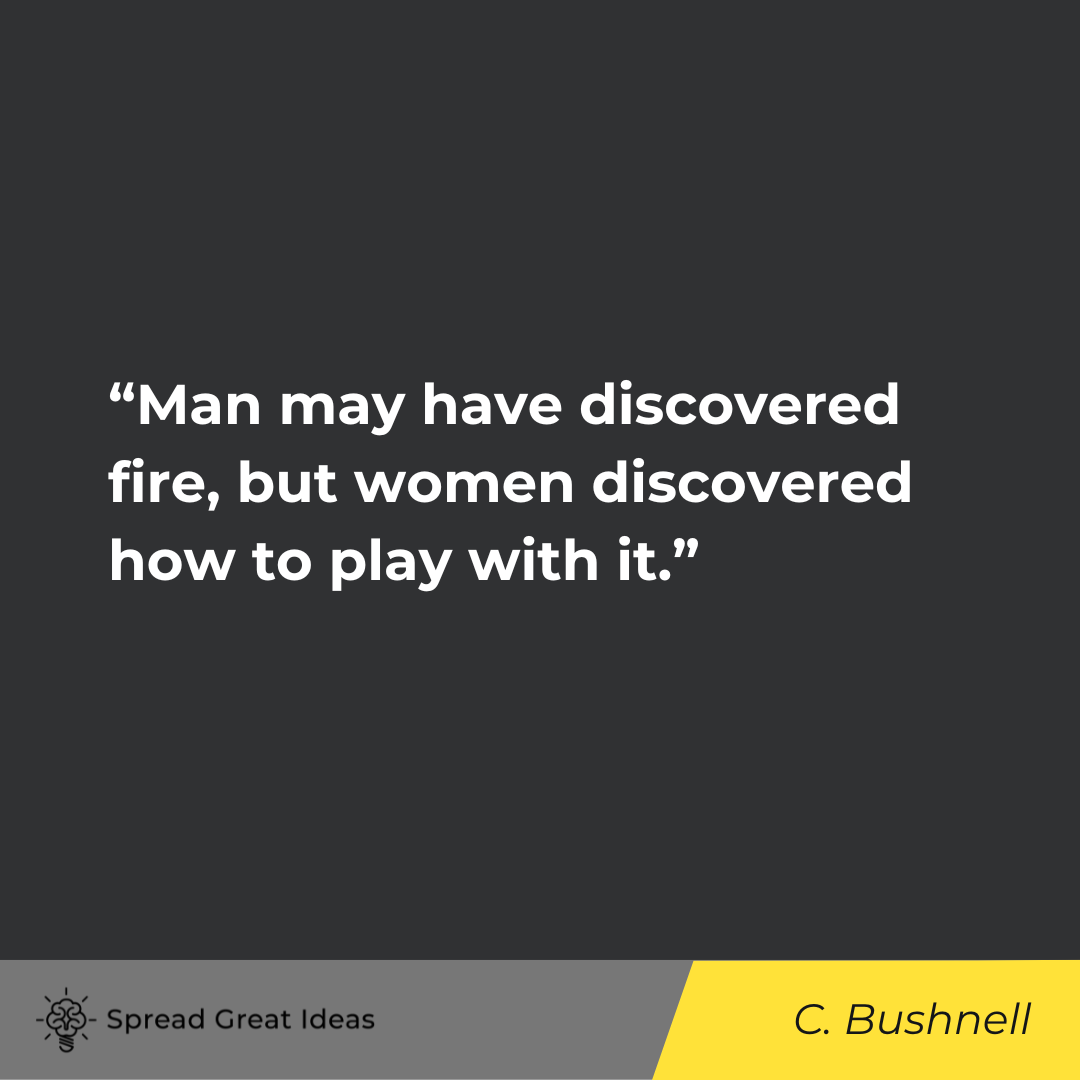
J.D. Salinger
“You asked me how to get out of the finite dimensions when I feel like it. I certainly don’t use logic when I do it. Logic’s the first thing you have to get rid of.”
– J.D. Salinger, Nine Stories
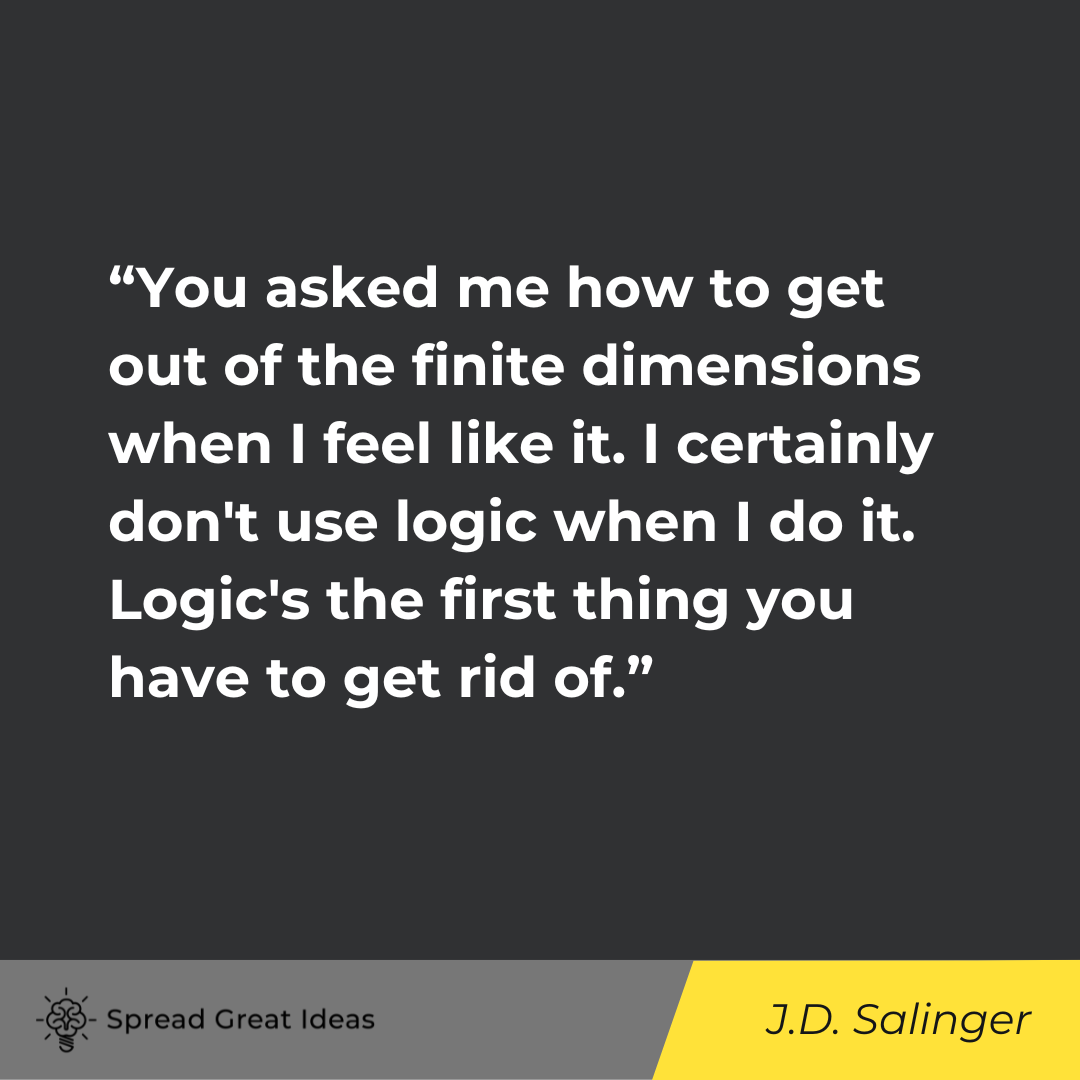
Chögyam Trungpa
“Are the great spiritual teachings really advocating that we fight evil because we are on the side of light, the side of peace? Are they telling us to fight against that other ‘undesirable’ side, the bad and the black. That is a big question. If there is wisdom in the sacred teachings, there should not be any war. As long as a person is involved with warfare, trying to defend or attack, then his action is not sacred; it is mundane, dualistic, a battlefield situation.”
– Chögyam Trungpa, Cutting Through Spiritual Materialism
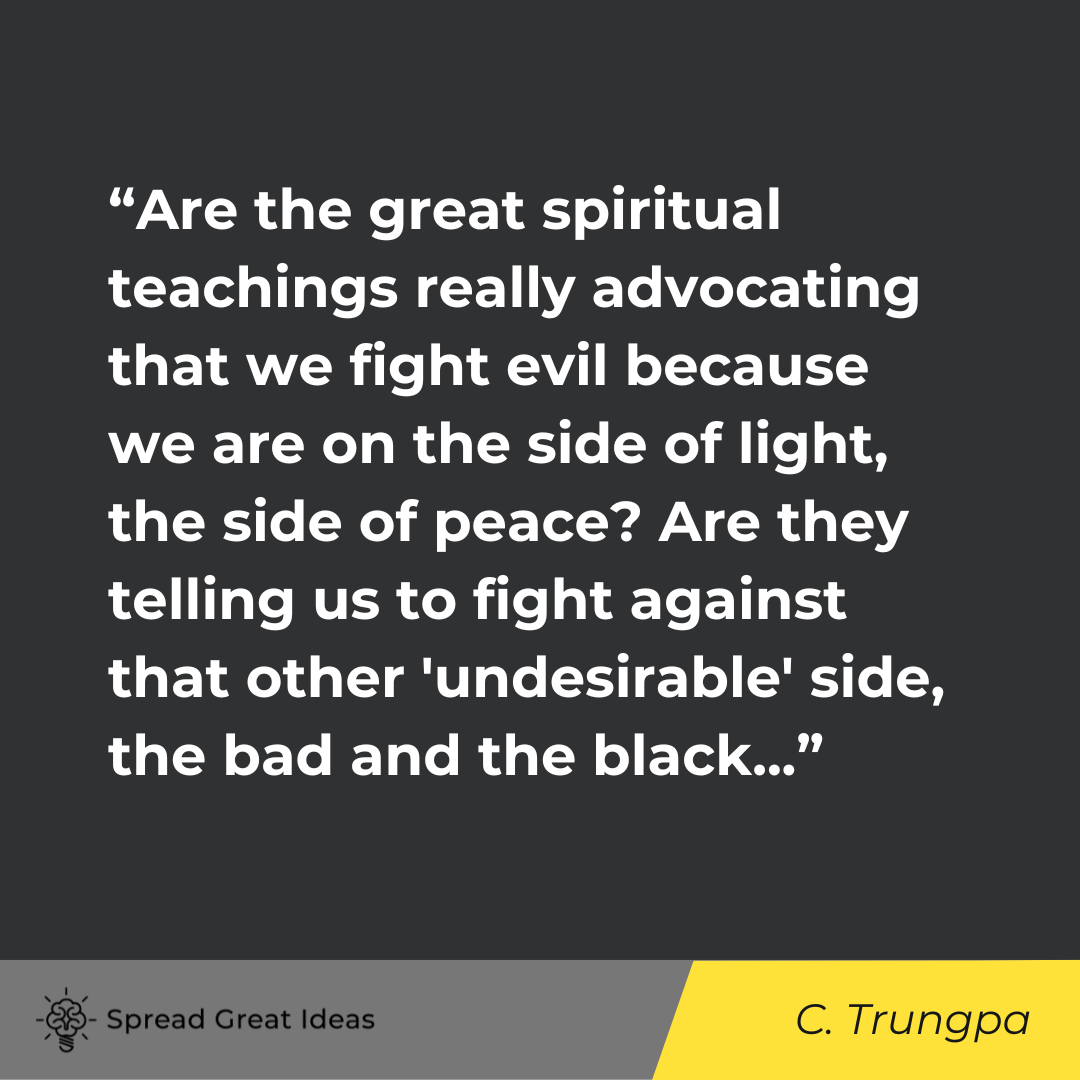
Fernando Pessoa
“We, all who live, have
A life that is lived
And another life that is thought,
And the only life we have
It’s the one that is divided
In right or wrong.”
– Fernando Pessoa
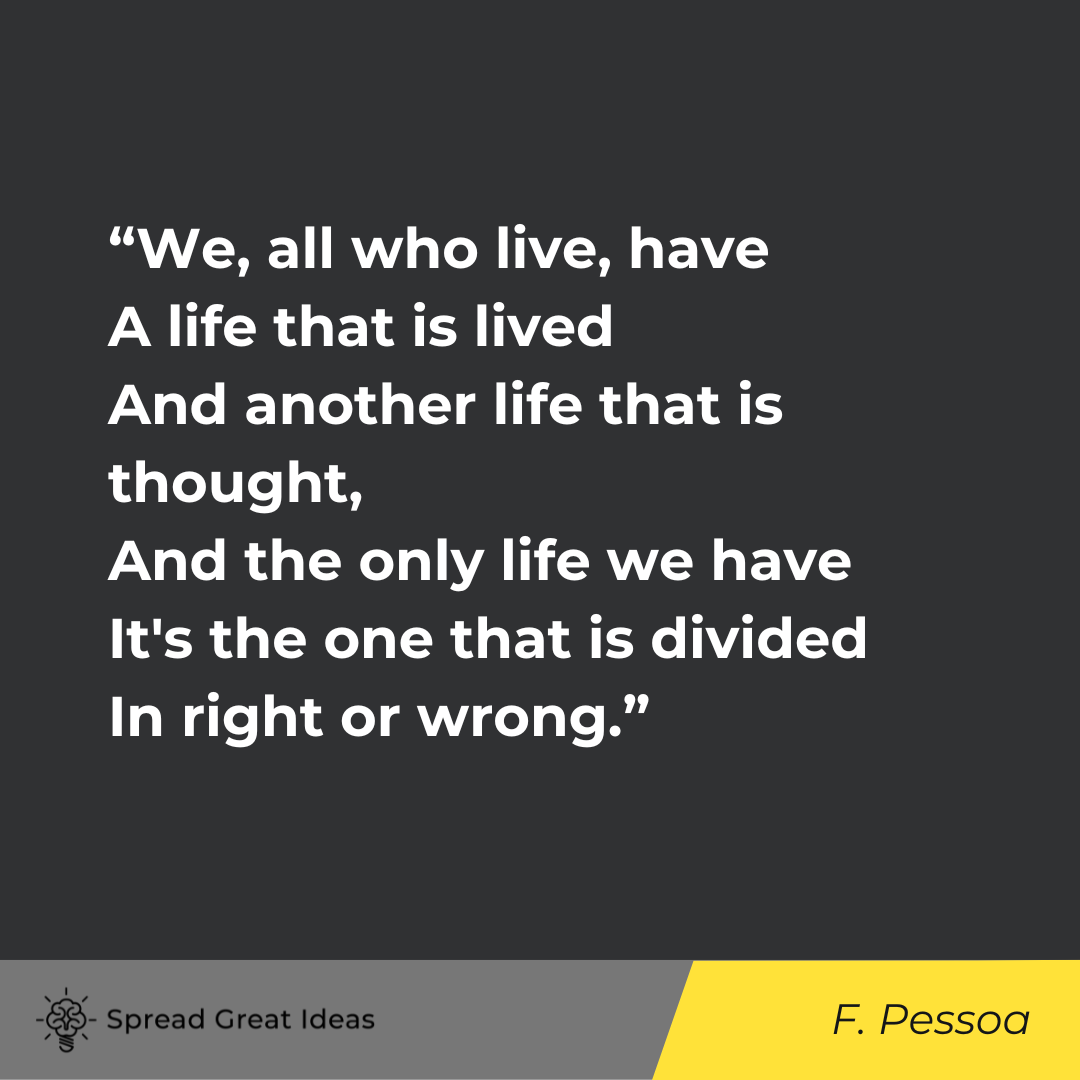
Suzy Kassem
“A beetle will chase after an opening of light, while a cockroach will scatter at a crack of it. How are we different from insects? Nobody is purely good or purely evil. Most of us are in-between. There are moths that explore the day and butterflies that play at night. Polarity is an integral part of nature — human or not human.”
– Suzy Kassem, Rise Up and Salute the Sun: The Writings of Suzy Kassem
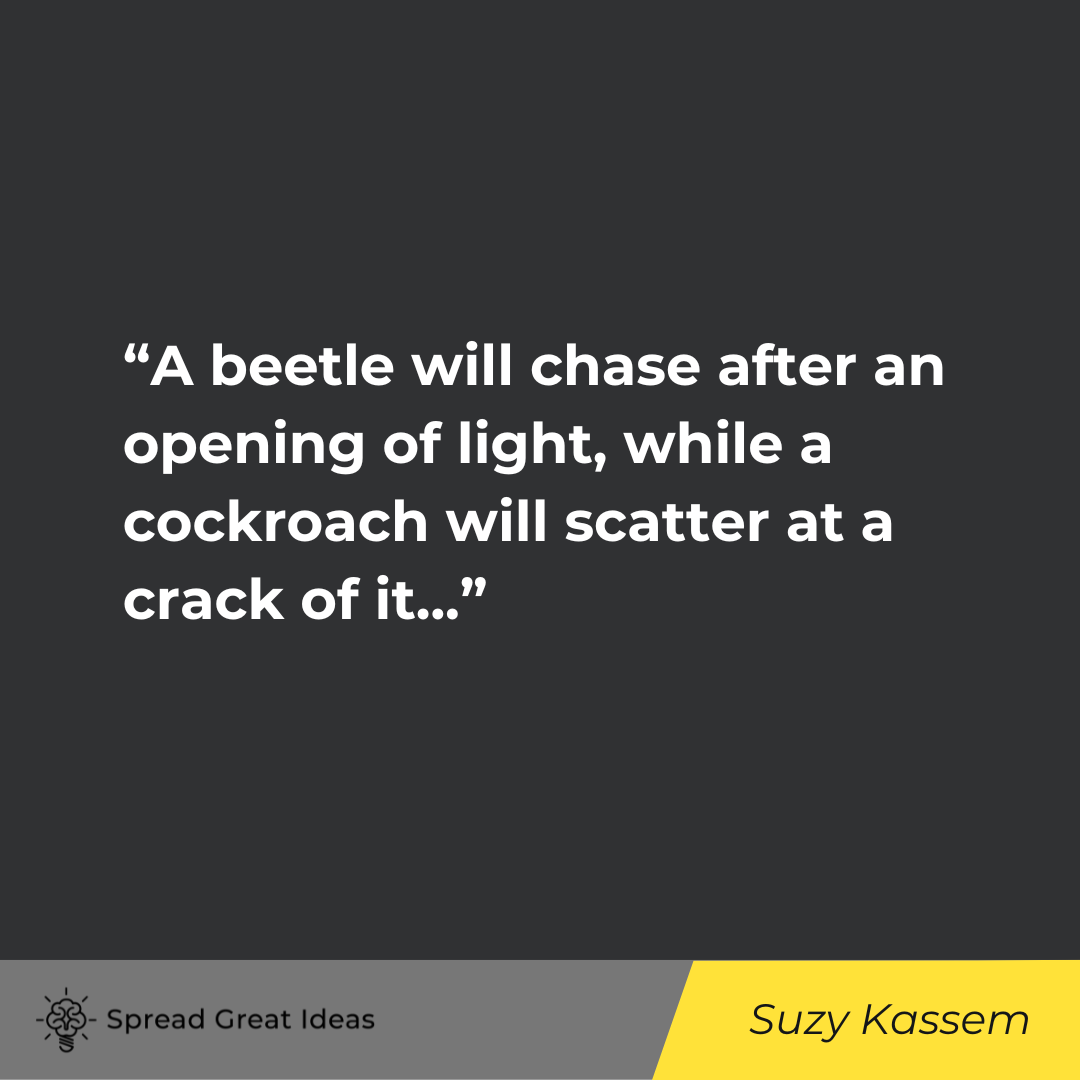
Jack London
“At once he became an enigma. One side or the other of his nature was perfectly comprehensible; but both sides together were bewildering.”
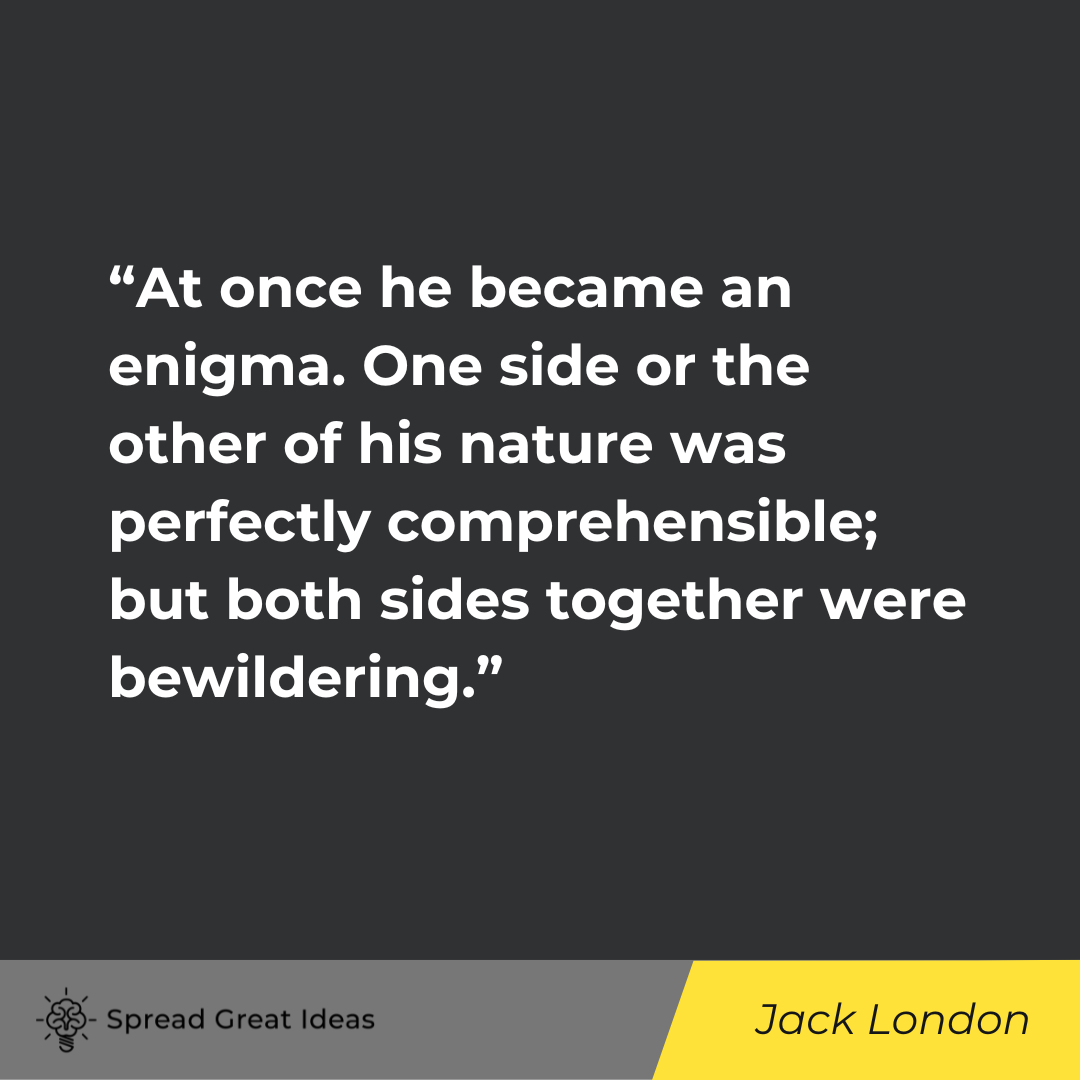
Laurence BL
“I loved ballet because it translates so harmoniously the dual relationship between beauty and pain.”
Courtney M. Privett
“What is life without loss, love without loneliness, ecstasy without pain? You can’t have one without the other or you could never appreciate either.”
– Courtney M. Privett, The Crystal Lattice
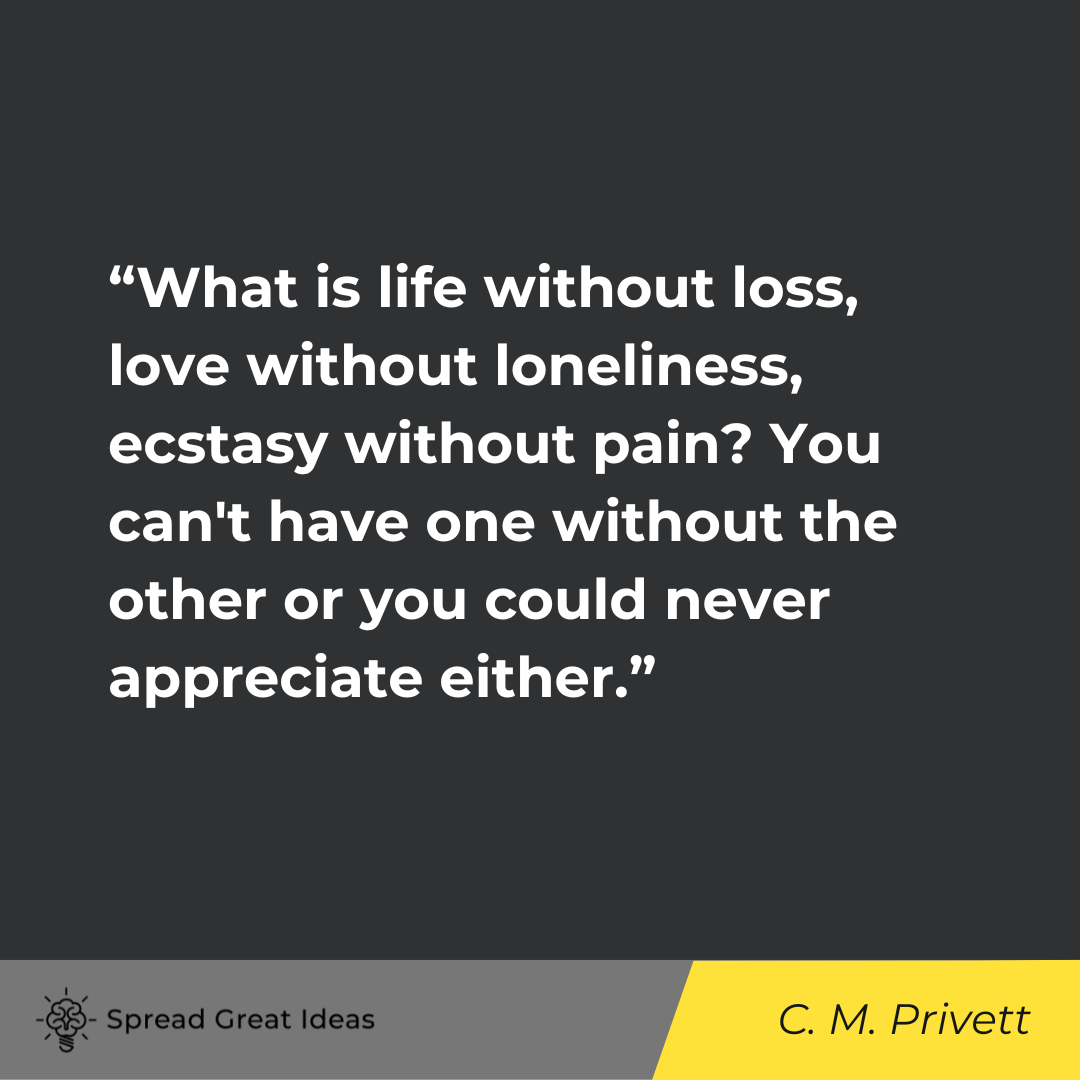
Caleb Carr
“Imagine, he said, that you enter a large, somewhat crumbling hall that echoes with the sounds of people mumbling and talking repetitively to themselves. All around you these people fall into prostrate positions, some of them weeping. Where are you? Sara’s answer was immediate: in an asylum. Perhaps, Kreizler answered, but you could also be in a church. In the one place the behavior would be considered mad; in the other, not only sane, but as respectable as any human activity can be.”
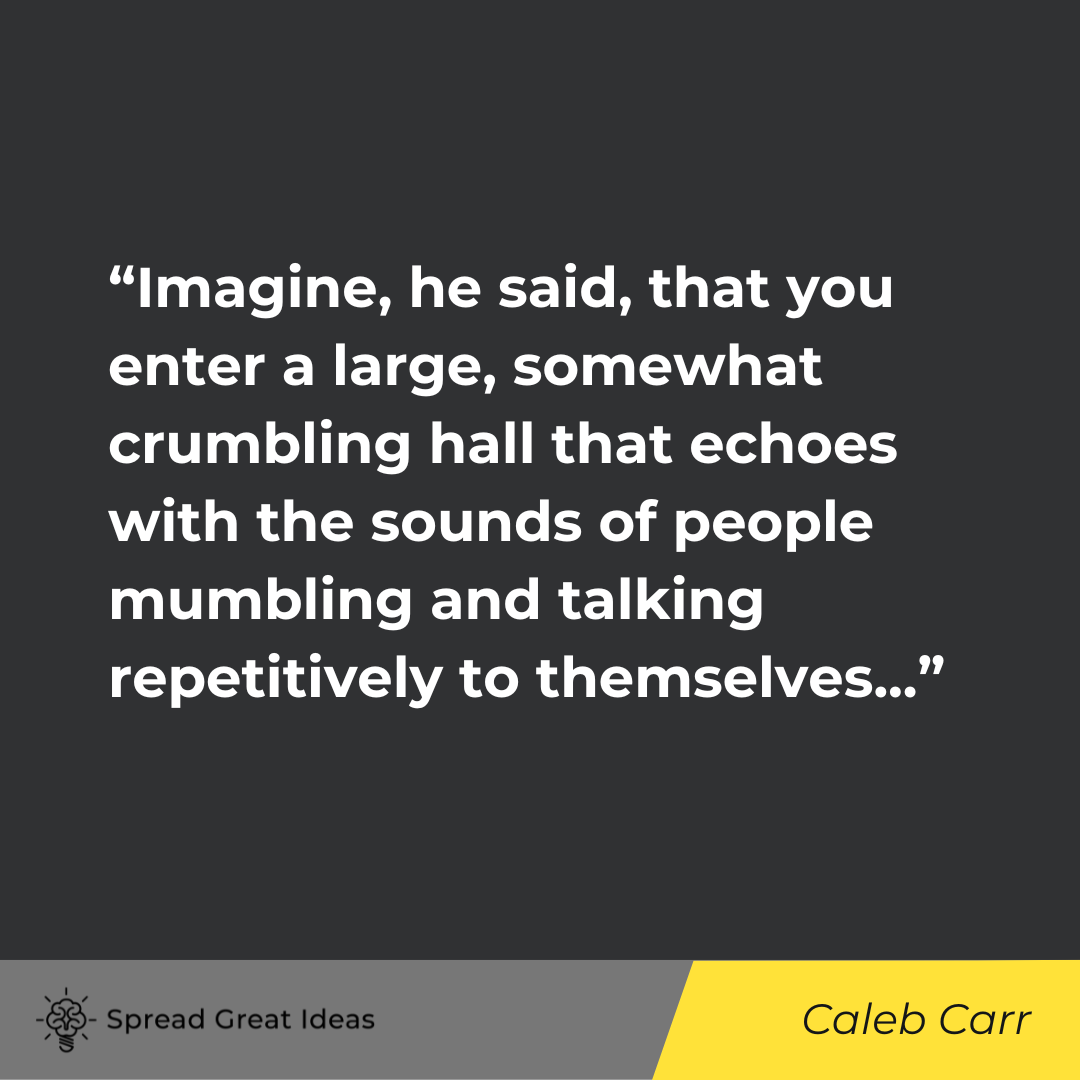
Aman Tiwari
“Maybe there exists an inherent contradiction in our desires. Maybe this is the reason why we never feel contentment even after the fulfilment of our desires. Maybe we desire actually of a ‘continuous desire’ or persistence of a desire and not its ‘fulfilment’ as such.”
– Aman Tiwari, Memoir: The Cathartic Night
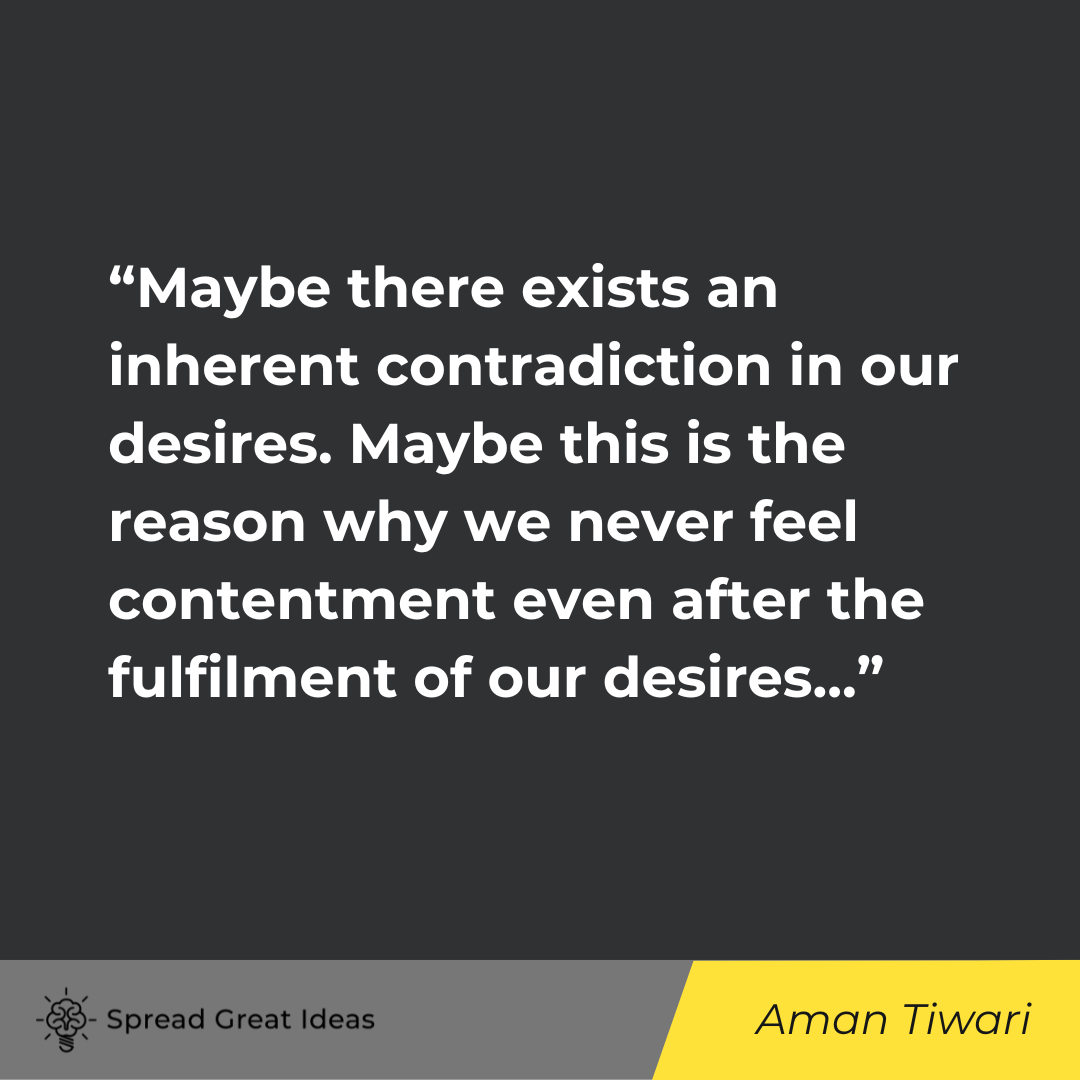
Aniekee Tochukwu Ezekiel
“Nothing is wrong with darkness provided you control the switch.”
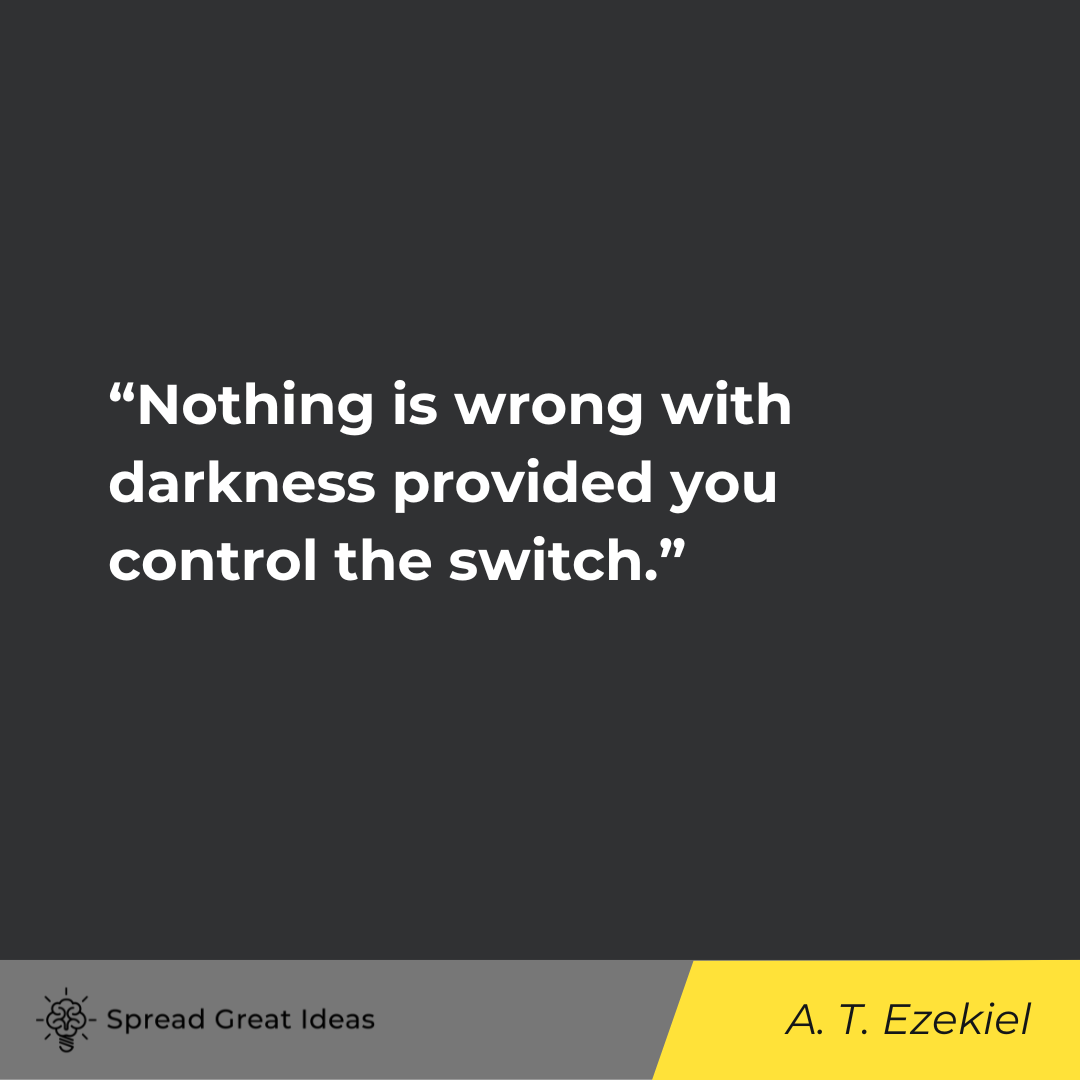
Mokokoma Mokhonoana
“Sometimes the correct answer is neither ‘a’ nor ‘b’, but ‘a-b’.”
– Mokokoma Mokhonoana
